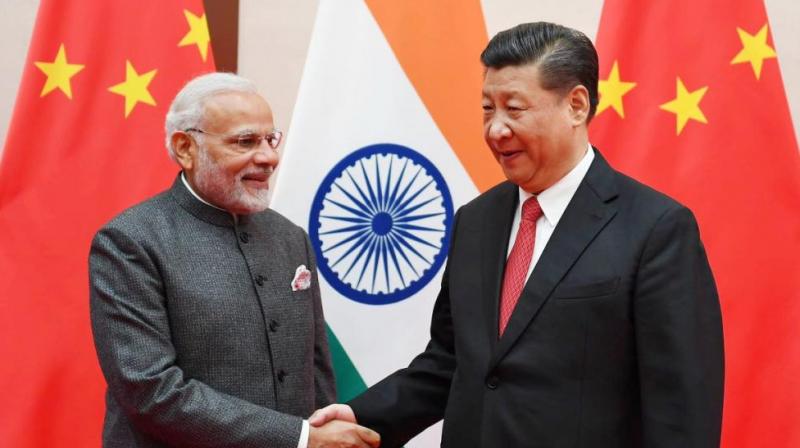How silent India, aggressive US got China on board to corner Masood Azhar: report
India was trying to corner Azhar globally since 2009 after the 26/11 attacks in Mumbai in 2008 but China used to put a \"technical hold\".

New Delhi: While the United Nations listed Jaish-e-Mohammad (JeM) chief Masood Azhar as a global terrorist after China lifted its veto, New Delhi kept its diplomatic negotiations under the table strategically involving the US, the UK, France, China and Pakistan as reported by The Indian Express.
The report reads that much of the negotiations were held in New York while the other countries were kept in the loop.
Azhar is among the three terrorists who was exchanged against the release of hostages of the hijacked Indian Airlines’ flight IC-814 in Kandahar, Afghanistan back in 1999.
India was trying to corner Azhar globally since 2009 after the 26/11 attacks in Mumbai in 2008 but China used to put a "technical hold" on the same.
India made subsequent attempts in 2016, 2017 and 2019. In 2017, the proposal was forwarded by the US, the UK and France hinting that India was building a diplomatic consensus. On all occasions, China didn’t budge.
The reason India didn’t react to China vetoing the listing of Azhar on March 13 this year was because negotiations were underway to get China on board.
After China signed the United Nations Security Council’s (UNSC) statement in February condemning the Pulwama attack, it conveyed Pakistan’s five pre-conditions to New Delhi: de-escalate the situation, start bilateral dialogue, delink Pulwama attack to Azhar’s listing, don’t push for more listings of the individuals and groups and stop violence in Kashmir.
Back in 2018, India had helped China to secure vice-chair of Finacial Action Task Force (FATF) by asking its ally Japan to step back as China had endorsed the “grey-listing” of Pakistan by the FATF. The message was clear that China works on quid pro quo model.
China wanted New Delhi to endorse its Belt and Road Initiative (BRI) after India had rejected it in 2017 stating China Pakistan Economic Corridor (CPEC), which forms a part of BRI and passes through Pakistan-occupied-Kashmir, violates India’s territorial integrity.
By the end of March in 2019, the US decided to take the matter of listing of Azhar to the UNSC and not to the 1267 sanction committee of the UNSC, as practised earlier, with the argument that committee was unable to reach a consensus.
At the UNSC, the issue would have been taken for a public discussion followed by voting. This was a concern for China as it would have been asked to make its reservations against listing of Azhar public, thus affecting its image.
All the 14 members of the UNSC, except China had agreed to declare Azhar a “global terrorist”. Besides, Australia, Canada and Japan (non-members of the UNSC) had also endorsed the proposal..
Acting on conditions laid down by Pakistan, India had de-escalated the situation at the border after the Balakot air strike.
By mid-April, the US had asked China to lift its veto by April 23 if the latter didn’t want to explain its stand at the UNSC.
India had also agreed to remain silent on BRI unlike in 2017. However, India did communicate that there was no change in its position.
China saw this as a possible deal as Belt and Road Forum was approaching on April 25 and Pakistan had also given its consent on listing of Azhar as tensions eased down at the border.
Further, Pakistan thought the move would be perceived as Pakistan’s commitment to curb terrorism.
The US wanted China to give in writing that it would not object to Azhar’s listing lest it wanted the matter to be taken up before the UNSC.
The deadline was set as May 1. China agreed to the same and gave its consent to seat the deal on May 1.
Meanwhile, the US had said that no waivers would be given to India for importing oil from Iran. The US wanted India to return the gesture as the former has been cracking down on Iran’s terror network.
MEA spokesperson Raveesh Kumar said that India would take a decision based on “commercial consideration, energy security and economic security interests”, hinting that India had other sources to import oil from.

